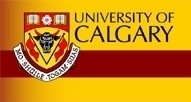Astronomy ASTR
Instruction offered by members of the Department of Physics and Astronomy in the Faculty of Science.
Department Head - R.B. Hicks
Note: For listings of related courses, see Applied Physics, Astrophysics, Physics, Medical Physics, and Space Physics.
†Note: Students who wish to pursue a degree program with an emphasis on Astronomy should consider a program with Astrophysics as the major field.
Junior Courses
Astronomy 205 H(3-0)
The Modern Universe
A comprehensive, descriptive survey of modern astronomy which focuses on the development of our present views of the universe. Topics include: solar system exploration by telescope and spacecraft; the birth and death of stars; the violent interstellar medium; the milky way and other galaxies; cosmic rays, pulsars and supernovae; the concept of a black hole; exploding galaxies and quasars; the beginning and end of the universe; the possibilities of extraterrestrial life and interstellar communication. The opportunity for a field trip to the observatory will be provided. This course is not recommended for physical science majors.
Note: Not open to students with credit in Astronomy 211.
Astronomy 211 H(3-1T-1)
Fundamentals of Astronomy I
Basic concepts of astronomy with emphasis on our solar system including: spherical astronomy; Newton's laws and gravitation; time; elements of celestial mechanics; astronomical observation and measurement; telescopes and accessories; the planets and their satellites; the sun and the rest of the solar system. Laboratory exercises will be held at the Rothney Astrophysical Observatory as circumstances permit. Recommended for science majors.
Prerequisites: Pure Mathematics 30 and Physics 30.
Astronomy 213 H(3-1T-1)
Fundamentals of Astronomy II
Observations of stars and galaxies and their interpretation. Topics include: distances and motions in the universe; radiation and matter; characteristics of stars and star clusters; the interstellar medium; binary and variable stars; stellar structure and evolution; galaxies and cosmology. Laboratory exercises will be held at the Rothney Astrophysical Observatory as circumstances permit. Recommended for science majors.
Prerequisites: Astronomy 211.
Senior Course
Astronomy 301 H(3-0)
Archaeo-Astronomy
Astronomy of ancient European, Mid-Eastern, Eastern and New World civilizations. Topics include: the appearance of ancient skies; the movement of the sky and the motions of the sun, moon and planets among the stars; eclipses; ancient observatories; the kind of observations made and the solution methods used by the ancients; time and date measurements; calendars; ancient cosmologies and cosmic myths.
Note: This course contains a significant amount of algebra and trigonometry.

